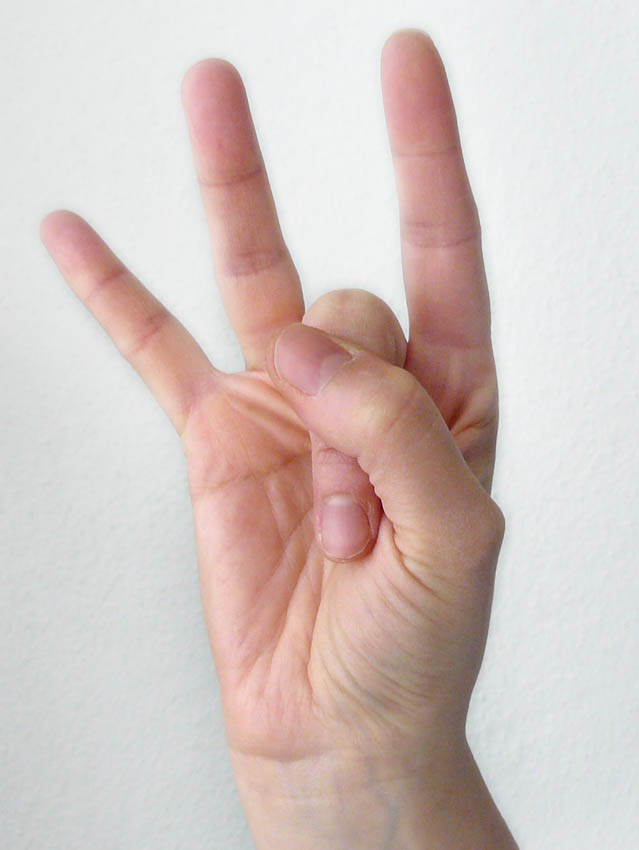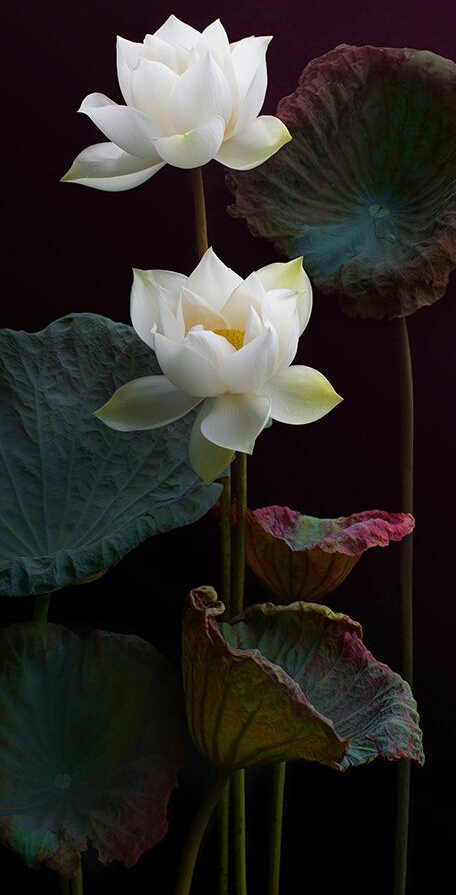Many people dream of the perfect romance and a partner that will sweep us off of our feet and into the sunset of an eternally happy ever after. In fact, most of us are probably guilty of daydreaming about our “perfect match” sometimes. But how can it affect our real relationships when our partners don’t meet our picture perfect dreams? This doesn’t mean we should settle for someone we’re miserable with, but it does mean that we should always expect to put work into a relationship. Think of it as an artistic masterpiece; you and your partner are the tools and you have to work together to make the canvas beautiful. We can be happy and fulfilled in a relationship, but not if we expect the canvas to paint itself!
Tag: mindfulness
Mindful Words and Actions
It’s not just seated meditation that creates positive change in our lives. Being mindful of our language can also make a big difference.
I believe that words are an influential and determining force—not only the words that we say, but how we say it.
If you consistently use negative, undermining words, the result will consistently show. If you use positive, encouraging words, you’re more likely to create a positive outcome.
I had to quit saying: “My skin is awful. I’ll never get better. I hate my life.”
Instead, I had to begin exercising mindful thoughts such as: “My skin will get better. I will finish my eBook. This is only one obstacle, and if I get over this I will be stronger than yesterday.”
You can apply this to your life, your passions, and craft.
The Eternal Bond of Friendship- Krishna and Sudama
The Eternal Bond of Friendship- Krishna and Sudama
Indian mythology abounds with colorful and flavorful tales and lore, each having a hidden moral or lesson to learn from. While some of these stories deal with valor and heroic deeds; others relate in detail, instances of love and friendship. In this present-day jet-age, a true friend is one who is the most dinarfficult to find and keep. We have several hundreds of friends, both online and offline, but only the really lucky ones get to meet that one friend and companion who will stay by their side, no matter what happens in their lives.
This time, we bring you a wonderfully refreshing and touching tale of the eternal bond of true and divine friendship between man and God – the bond that verily uplifts the Jeevatma to the level of the Paramatma and makes him one with the Creator. We present before you the story of Krishna and Sudama.
Sudama was a childhood friend of Lord Sri Krishna. Krishna and Sudama once went to the forest to gather brushwood. They stayed on there for long, walking and chatting with each other, while also enjoying the beauty of their environs. It started getting quite late and Krishna got hungry. Sudama, in the meantime, had some grams with him. However, he felt embarrassed to offer this simple food to his friend, who hailed from a royal family. Krishna kept telling him how hungry he was and asked his friend if he had anything at all to eat. Sudama denied taking along anything to eat.
Krishna knew very well that his friend had some food with him. He also knew that the boy too was hungry, so he dozed off for a little while. Sudama immediately opened his little pack of food and stealthily ate up some of it. Krishna noticed all this but said nothing. Both the boys then collected the brushwood and left for their homes.
After finishing with their studies, they lost touch for several years. Krishna moved away from Vrindavan and went on to Dwaraka, where he got married. He then became the King and a military leader of great repute. Sudama, though, remained as impoverished as always and stayed on in the same village; continuing to dedicate his life to religious austerities, mantra, japa and developing a spiritual attitude toward life. He also continued thinking of Krishna and loved him as always.
In due course of time, Sudama got married to Susheela . However, he never had any interest in accumulating wealth. He was happy to live frugally, desiring no material gains. He accepted his financial status and preferred to spend time in the contemplation of the Supreme Godhead. He had not much money to spare for his wife and children. There were many times when the family did not even get two square meals.
Sudama’s wife repeatedly requested her husband to visit his old friend Krishna and beseech him for some financial assistance. She would remind him that he being a true Brahmin, a devotee and long-lost close friend of Krishna, the latter would be only too willing to help him in his time of trouble. Susheela, like her husband, was not bothered about acquiring material treasures; but she was concerned about the health of her family, especially that of her children.
He eventually agreed to visit his long-lost royal friend at Dwaraka. He realized that it would not be nice to go empty-handed to visit the King and so, he asked his wife to prepare some foodstuff that he could present before Krishna. Having nothing to eat in the house, she picked up some flattened rice or “poha” and packed it in a little piece of cloth. Sudama took it and happily left for Dwaraka.
Reaching Dwaraka, Sudama stared in amazement at the massive gates of the palace, and then entered therein, passing through several military camps and residential quarters on the way. Once inside, he saw Krishna seated with Rukmini. The Lord immediately got up and warmly received Sudama, fondly embracing him. The palace attendants were shocked to see their King behaving in such a fashion with this humble, obviously very poor Brahmin. Sudama was completely overwhelmed by the rousing welcome that Krishna gave him. The Lord asked him to be seated and, in traditional fashion, washed Sudama’s feet, as a mark of respect for a Brahmin. Krishna then took some of the water used to wash his feet and sprinkled it over his own head. He then offered Sudama food and drink to refresh him after his long journey.
Krishna’s mood turned jovial and, with a mischievous glint in his eye, he asked his friend what the latter had brought him as a gift and if his wife had packed some nice eatables. Reluctantly and feeling very embarrassed, Sudama offered him the packet of flattened rice. Krishna, knowing what his friend was thinking, enthusiastically opened the packet and was very happy when he saw the contents inside it. He decided he would partake of the rice and then richly reward Sudama for the same.
The Lord grabbed a handful of the foodstuff and happily ate it up. When he tried to put in a second mouthful though, his wife Rukmini, the Goddess of Fortune, held his hand and shook her head ever so slightly. She meant to tell him that with one handful of the rice, Sudama would become extremely wealthy in his present life. But with a second handful, he would continue to reap riches even in his next life. She was already obliged by Sudama’s offering, to stay in this Brahmin’s house and shower her grace in his present birth. She did not wish to continue doing so in his next birth as well.
Krishna understood what Rukmini was trying to tell him and, with a gentle smile on his lips, kept aside the packet of rice. He then fed his friend a lavish meal, asked him to rest for a while and then spent some more time talking with him. Sudama, in the meantime, was in a state of transcendental bliss and so, actually forgot the reason why he had come here in the first place. He spent the night at the palace and left for his home early next morning. Krishna lovingly bade him farewell, though he did not offer him anything in material terms. On the way, he was completely happy and absorbed thinking of the wonderful time he had spent with the Lord.
He thought that Krishna had desisted from giving him money and other material things, as he probably thought that those things may spoil his own attitude and make him too proud and arrogant; finally making him forget God. Thinking thus, he continued on his way back home.
He thought that Krishna had desisted from giving him money and other material things, as he probably thought that those things may spoil his own attitude and make him too proud and arrogant; finally making him forget God. Thinking thus, he continued on his way back home.
A Palace Of Gold Awaits Sudama
As he neared his home, Sudama was dismayed to see that his humble little cottage was missing. In place of that was a large, gleaming palace, made of gold, stones and jewels. His poor and shabby neighborhood had been converted into beautiful gardens and parks with lovely lotus-filled lakes, filled with flocks of different multi-colored birds! Regal-looking men and women were strolling around the parks and divine music was playing somewhere in the background.
Sure that he had come to the right place, Sudama wondered where his little home had disappeared, virtually overnight. As he stood there taking in the sights, his wife ran out of the palace to greet him. She was dressed in opulent, rich silks and heavy gold jewelry and seemed to him like the Goddess of Fortune herself. She affectionately led her amazed husband inside the palace. Its chambers were beautiful and ornate, fit for Indra, the King of the Gods. The palace consisted of several ornamented columns and pillars, with rich silk and velvet canopies hanging from the windows.
Sudama then understood that all of this was Krishna’s doing. The Lord had been silently watching him and his suffering for all these years. But his small, seemingly meaningless offering of the poha had paid rich rewards. He had been bestowed wonderful and incomparable riches and a palace, beautiful beyond human imagination.
Moral Contained In The Story
The story of Krishna and Sudama contains several hidden lessons that we could learn from. Some of them are as follows:
All are equal in the eyes of the Lord and He does not differentiate friendship based on petty caste, wealth and social status. We too should learn to respect each individual, as each one is a creation of that Supreme Being.
Sex without love
“It’s like fast food…Satisfies a craving, but doesn’t nourish”
An old Irish proverb says it all~
“Sex with love is one of the finest and truly great experiences in life.”
It may be thrilling, explorative, and physical.
But there is no deep spiritual soul-connecting thing underneath.
Is it Healthy?
Not everyone can adopt this point of view— particularly women. When the mind connects sex with intimacy and emotions, it becomes very hard to separate. If a person does not find sex without love fulfilling or gratifying, then it’s better to abstain from such relationships.
It’s not healthy to use sex for means other than physical gratification, like the expectation that it will blossom into love. Sex should likewise not be used for attention or as leverage in a relationship to gain something else.
If people use sex as a form of escapism, it’s no different than being addicted to other behaviors(Rape/Child sexual abuse/manipulation/Prostitution).
Using sex to avoid dealing with pain or loneliness can only bring on more of the same.
Basically, if purely sexual relationships are not personally satisfying, then it’s not healthy for you to engage in these types of relationships.
Is it Optimal?
Sex without love seems to be connected to the physical world alone, which is only a small part of what is available to us. Sex with love is experienced at the core of people, where their innate health resides – apart from the personal thoughts, insecurities and beliefs, we are all so capable of, which will only cover up, but can never obliterate our healthy core. Like the sun behind clouds – it’s always there, it just gets covered up at times; but it’s only temporary.
The hope is that those who have experienced sex with love will provide examples for those who have not. It seems to me that the more people in touch with their spiritual essence, the better the world will be.
If you’re trying to figure out what kind of person you are when it comes to sex, then here are some questions you should start asking yourself.
Q. How were you raised?
Q. What is your religious or spiritual belief?
Q. How do feel after an one night stand? Empty?
Q. What are your ratio of sex to love?
Q. Can you be in love without sex?
Q. Do you think it’s worth?
Q. How monogamous you are?
3 core practices for Benefit Individual’s “Very Happy ” State and Psychological Well-Being
Happy people are healthy people. Happy people live longer and enjoy a greater quality of life. They function at a higher level, utilizing their personal strengths, skills, and abilities to contribute to their own well-being as well as that of others and society. They are more likely to be compassionate and, therefore, to contribute to the moral fiber of society in diversely beneficial ways. They are less prone to experience depression and, if they do, tend to manage it better and more quickly. They are less likely to experience anxiety, stress, or anger. As a result, happy people engage in fewer acts of violence or antisocial behaviors. They enjoy stronger and more-lasting relationships, thus facilitating society’s social capital. In all, they contribute to society in economic, social, moral, spiritual, and psychological terms. Compared to unhappy or depressed people, the happier ones are less of a burden to health services, social welfare agencies, or police and justice systems and so are less of a burden to the economy. In other words, building greater levels of individual happiness not only benefits a particular person but also leads to the healthy, happy functioning of society as a whole.
Fortunately, in the last decade or so, burgeoning research in the field of positive psychology has taught us much about the state of happiness. Most research prior to this, at least in the Western world, had focused on psychological abnormalities, dysfunction, and idiosyncrasies—despite happiness being the next most important life goal for most people once our physical needs for food, shelter, and health have been met. So what have we learned from this research?
1. Relationships
First, as a contributor to happiness, research shows that relationships top the scale. Researchers in one study asked, What contributes to the top ten percent of happy people being happy? What are the keys to happiness for these “very happy” people? The answer was clear: the single-most important variable was that “very happy” people had good social relationships with other people. Other research supports this, claiming that “relationships are an important, and perhaps the most important, source of life satisfaction and emotional well-being.”
Spirituality comes in second on the list of what contributes most to
happiness. Researchers have found that spirituality is clearly linked with
higher levels of subjective well-being and higher satisfaction with both
life and marriage.
2. Spirituality
Second on the list of what most contributes to happiness is a sense of spirituality. In fact, a sense of spirituality strongly correlates to a life well-lived. This relationship between happiness and taking a “big picture” view of life is born out in research across gender, age, religion, and nationality. Spiritual strivings are clearly linked with higher levels of subjective well-being, particularly in regard to greater positive affect and higher satisfaction with both life and marriage. Numerous researchers have found that those of us with strong spiritual beliefs are happier and better protected against depression than those who have no particular sense of spirituality. Similarly it seems that people cope better with major adversity in their lives and major physical illness if they have a sense of established spirituality.
3. Strengths
In another area, researchers have found that when we use our strengths, skills, resources, and abilities, we feel in touch with our “true selves”—we experience a sense of energy and function at optimal levels. The acknowledgment and use of one’s strengths are a significant predictor of both psychological and subjective well-being, which in turn contributes to the optimal functioning of society. One study of positive psychotherapy conducted in a clinically depressed population found that identifying one’s signature strengths and finding ways to use them led to clinically significant and sustained decreases in depression.
The Shunya Mudra or Sky Mudra
The word Shunya means zero or sky in Sanskrit. This Shunya Mudra or Sky Mudra is supposed to work on the basic element of ether that permeates all space.

Steps:
- Bend the middle finger so that its tip rests on the mound of your thumb.
- Bend your thumb until it presses lightly on the middle finger. All other fingers should point straight up to the sky.
- Keep the middle finger at the mount of Venus and press it with the thumb.
- This Mudra can be performed for 45 minutes every day or can be performed in three sessions of 15 minutes each.
- The Shunya Mudra is usually performed with both hands.
Time Duration: One can practice it for 40 to 60 minutes daily until to be cured from the disease.
Benefits:
- It relieves an earache within 4 or 5 minutes.
- It is useful for the deaf and mentally challenged, but not for inborn ones.
- It reduces the dullness in our body.
- Cures mental illness (if not inborn )
Mudra Science : Hand Alignments for Holistic Health

Believe that your health is in your hands!
Our hands are particularly blessed with virtues of wellness. The four fingers and the thumb represent the five major building blocks or the ‘Panchamahabhootas’ of which the entire universe is made viz. Sky (Ether), Air, Fire, Water and Earth.
According to natural sciences, disease is nothing but a limitation that emerges in the continuity and balance of these five elements.
Philosophy of Mudra Therapy
The natural sciences of Mudra therapy believe that the five fingers correspond to the five basic elements viz. Ether, Air, Fire, Water and Earth.
- Thumb – The fire (Agni)
- Index finger – The air (Vayu)
- Middle finger – The ether (Aakasha)
- Ring finger – The earth (Prithvi)
- Small finger – The water (Jala)
In order to bring back the balance in the five elements, there are some specific methods of touching and aligning the fingers with each other. These are referred to as ‘Hast-Mudras’ and this easy and doable therapy may be practiced anytime as an augmented relief from your malady as well as a handy tool for restoring your wellness.
Learn various Mudras in my next write up:
The Concept of Self in Ayurveda
The Self, as this inner dimension of our nature is called in Ayurveda, is the central point of our being, the hub of the wheel. It is the true inner center of our diversified lives. Thought, feelings, speech, action, and relationships all originate here, deep within the personality. The whole person-and the whole field of interpersonal behavior-can be spontaneously enhanced by the process of self-referral, or looking within to experience the Self. This is analogous to the natural process by which all the branches, leaves, flowers, and fruit of a tree can be simultaneously nourished and enlivened by watering the root.
The Self can be directly experienced. Those who do experience it find it to be deeply peaceful, yet a reservoir of creativity, intelligence, and happiness that spills over into all phases of living.
https://herencyclopedia.com/2016/06/12/the-five-great-elements/
The Five Great Elements
Ayurveda believes that everything in this universe is made up of five great elements.These are earth, water, fire, air, and ether.
Earth represents the solid state of matter. It manifests stability, permanence, and rigidity. In our body, the parts such as bones, teeth, cells, and tissues are manifestations of the earth. Earth is considered a stable substance.
Water characterizes change and represents the liquid state. Water is necessary for the survival of all living things. A large part of the human body is made up of water. Our blood, lymph, and other fluids move between our cells and through our vessels, bringing energy, carrying away wastes, regulating temperature, bringing disease fighters, and carrying hormonal information from one area to another. Water is a substance without stability.
Fire is the power to transform solids into liquids, to gas, and back again. In other words, it possess power to transform the state of any substance. Within our bodies, the fire or energy binds the atoms together. It also converts food to fat (stored energy) and muscle. Fire transforms food into energy. It creates the impulses of nervous reactions, our feelings, and even our thought processes. Fire is considered a form without substance.
Air is the gaseous form of matter which is mobile and dynamic. Within the body, air (oxygen) is the basis for all energy transfer reactions. It is a key element required for fire to burn. Air is existence without form.
Ether is the space in which everything happens. It is the field that is simultaneously the source of all matter and the space in which it exists. Ether is only the distances which separate matter. The chief characteristic of ether is sound. Here sound represents the entire spectrum of vibration.
Every substance in our world is made up of these five substances. All substances can be classified according to their predominant element. For example, a mountain is predominantly made up of earth element. A mountain also contain water, fire, air and ether. But these elements are very small compared to the earth. So, its classification is the earth.
Ayurveda defines a human as the assemblage of the five great elements plus the “immaterial self.”
My way of Pashimottanasana and Counter-pose



You must be logged in to post a comment.